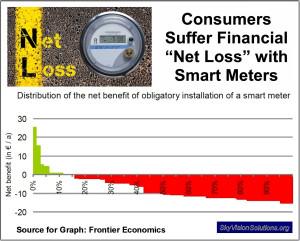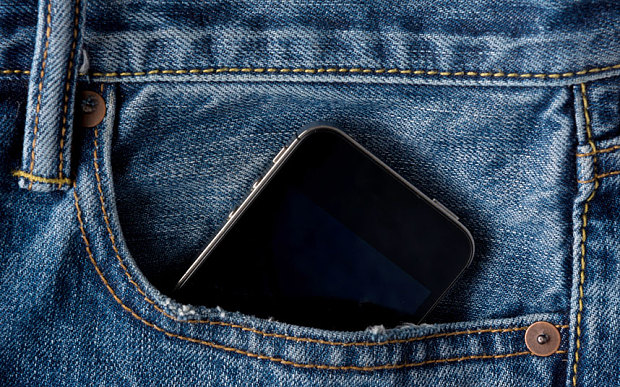
Vast Majority of Consumers Suffer Financial “Net Loss” with Smart Meters
 This article provides specific information to counter claims made by smart meter proponents that smart meters provide consumers with financial benefits, i.e., saving energy and reducing their utility bill. In addition, this article presents information to help disentangle how policy makers conflate the topics of grid modernization, smart meter deployments, and sound environmental policy.
This article provides specific information to counter claims made by smart meter proponents that smart meters provide consumers with financial benefits, i.e., saving energy and reducing their utility bill. In addition, this article presents information to help disentangle how policy makers conflate the topics of grid modernization, smart meter deployments, and sound environmental policy.

Internet by light promises to leave Wi-Fi eating dust
 Barcelona (AFP) - Connecting your smartphone to the web with just a lamp -- that is the promise of Li-Fi, featuring Internet access 100 times faster than Wi-Fi with revolutionary wireless technology.
Barcelona (AFP) - Connecting your smartphone to the web with just a lamp -- that is the promise of Li-Fi, featuring Internet access 100 times faster than Wi-Fi with revolutionary wireless technology.

Mobile phones are 'cooking' men's sperm
Original Source - Telegraph.co.uk

Fertility experts are warning man that using a mobile for as little as an hour a day is "cooking sperm" and lowering level significantly.

 How to avoid "smart" meter "opt-out" fees?
How to avoid "smart" meter "opt-out" fees?
How can we avoid being forced by the power company to pay an "opt-out" extortion fee? One good way may be through legal notices - sending affidavits to the power company to change the terms of the contract we have with them and get rid of the opt-out fees.
We have posted an example of such an affidavit in our members section. Has anyone used this or something similar - what were your results? I will keep you posted of mine here as soon as my "opt-out" fee is straightened out.

 Messages from IEHA Charter Members
Messages from IEHA Charter Members

 WHO Class 2B Carcinogen classification and "stroll down memory lane"
WHO Class 2B Carcinogen classification and "stroll down memory lane"
Date: May 31, 2011 Lyon, France
The WHO/International Agency for Research on Cancer (IARC) has classified radiofrequency electromagnetic fields as possibly carcinogenic to humans (Group 2B) based on increase risk for glioma, a malignant type of brain cancer associated with wireless phone use.
Stroll down memory lane
A page or two in the school WiFi book should be dedicated to reminding readers about past human misjudgments - things that affected health (such as "cigarettes are good for you" - "more doctors smoke Camels than anything else" and other examples of chemical/radiation exposure that caused real harm - like lead paint)
Customer support service by UserEcho
